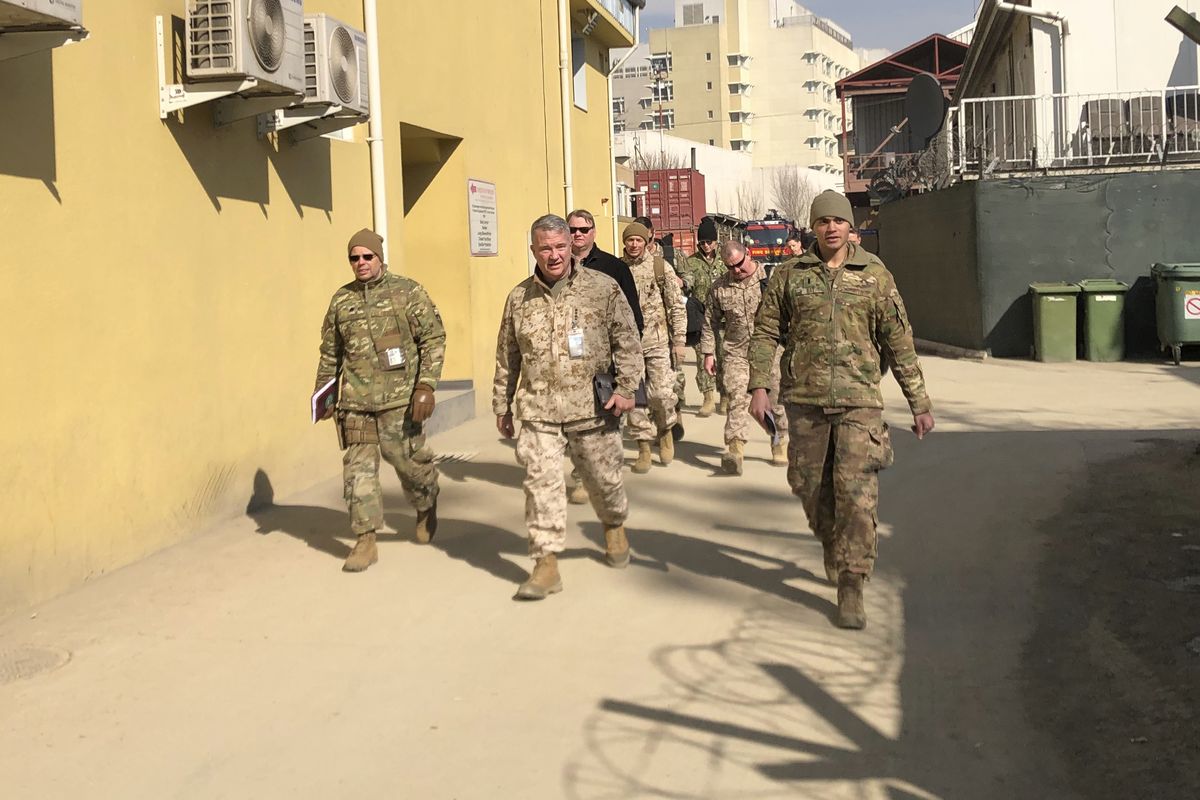Biden’s plan to withdraw troops from Afghanistan by Sept. 11 draws mixed reactions from Congress

WASHINGTON – President Joe Biden plans to withdraw all U.S. troops from Afghanistan by Sept. 11, multiple outlets reported Tuesday, two decades after the 2001 terrorist attacks launched from the country that sparked America’s longest war.
Biden is expected to announce the new timeline Wednesday, the Associated Press reported, overshooting a May 1 deadline for a full troop withdrawal under a deal the Trump administration struck in February 2020 with the Taliban. The news drew criticism from Idaho Sen. Jim Risch, the top Republican on the Senate Foreign Relations Committee.
“This plan fails to guarantee America’s safety,” Risch said in a statement. “I have long called for a responsible end to the war in Afghanistan, but for doing so in a manner that keeps Americans safe.”
Risch voted for a February 2019 Senate resolution opposing a “precipitous withdrawal” from Afghanistan, but he did not respond publicly to former President Donald Trump’s efforts to hasten the U.S. withdrawal, including the peace deal critics say empowered the Taliban by sidelining the Afghan government.
His office shared a letter sent to constituents over the past year, though not previously published, in which the Idaho senator said “a responsible end to the war in Afghanistan” should happen “in a way that safeguards our national security interests, preserves our hard-fought gains, and protects the homeland from those who wish us harm.”
Reactions from other congressional Republicans have been mixed, with Senate GOP leader Mitch McConnell calling the move “a grave mistake” while Missouri Sen. Josh Hawley criticized Biden on Twitter for not withdrawing troops sooner.
Rep. Adam Smith, a Bellevue Democrat who heads the House Armed Services Committee, told The Washington Post he supports Biden’s move, though he conceded “there are no good, easy decisions here.”
“Given the options, I think this is the best choice,” said Smith, whose district stretches between Seattle and Tacoma. “We can only be in so many places. We have to make choices, and those choices are not easy. It’s not as if we didn’t put in the time in Afghanistan.”
The Taliban did not immediately respond to Tuesday’s reports, but on Monday the group rejected the terms of a peace plan that reportedly included a six-month extension of the U.S. withdrawal deadline.
The Taliban – a militant group that provided a safe haven for al-Qaida to launch the 9/11 terror attacks – has regained control of much of the country since U.S. and allied forces invaded Afghanistan in October 2001 and ousted them from power.
The nonprofit Foundation for the Defense of Democracies estimates just one-third of Afghanistan’s districts are controlled by the U.S.-backed government, while the Taliban fully or partly controls the other two-thirds.
Jamil Shirzad, a Spokane resident who grew up in Afghanistan and worked with U.S. forces there as an interpreter from 2008 to 2013, said he fears the U.S. withdrawal will let the Taliban return to power and reverse freedoms Afghans have gained over the past 20 years, including the opportunity for women and girls to go to school.
“Afghanistan’s government is a failed government, but still there is a government that thinks about its legitimacy,” Shirzad said. “When you are facing terrorists, they do not know anything about legitimacy. They do not know anything about human rights. They do not know anything about women’s education.”
Shirzad, whose parents and other relatives still live in Afghanistan, said as an Afghan American he understands the reasons for a U.S. withdrawal but worries it will spell more violence and suffering for Afghans.
“Unfortunately, I’m not seeing a very bright future for that country,” he said. “A powerful country like the United States, it was expected to do the right thing. … There was a hope that this country will be fixed, but now the international community is saying, ‘Hey, we’re going to leave and you will need to handle whatever happens. It’s on you.’”
Retired Col. Brian Newberry, the former commander of Fairchild Air Force Base, said he hopes Americans never lose sight of the lives lost in the two decades of war, including more than 43,000 Afghan civilians and more than 2,300 U.S. troops.
“I’m not necessarily surprised by the move,” Newberry said. “I just hope that the conflict wasn’t in vain. … Twenty years is a lifetime for some, and it certainly was a lifetime for those who lost their lives in the conflict.”
“I hope that Afghanistan continues to be a place that isn’t a center of terrorism that threatens other countries, and I hope that the people there were made better by the sacrifices of the coalition military members.”